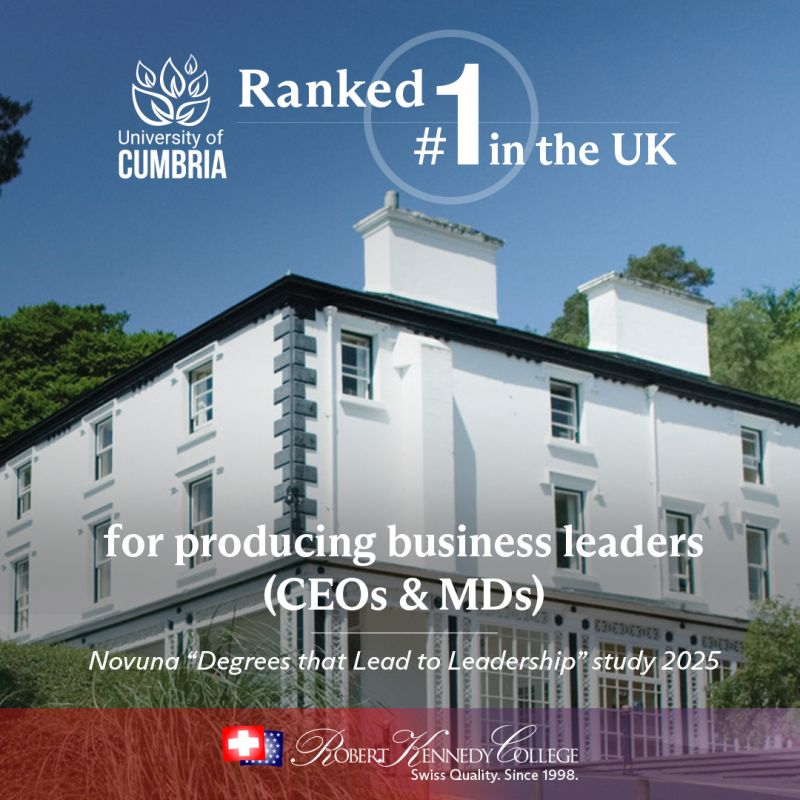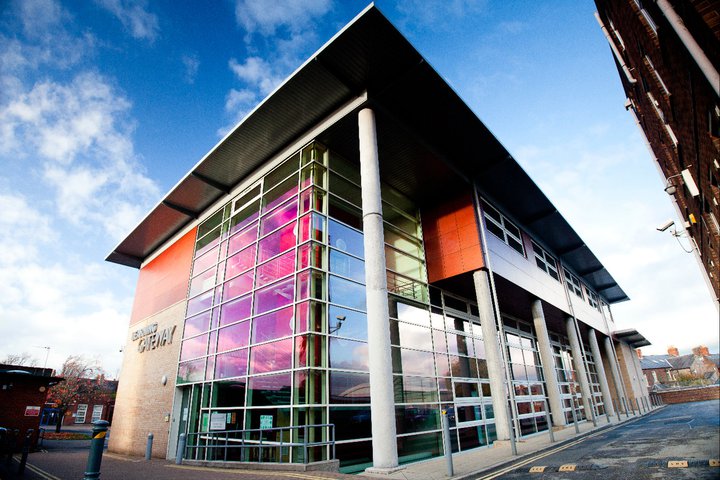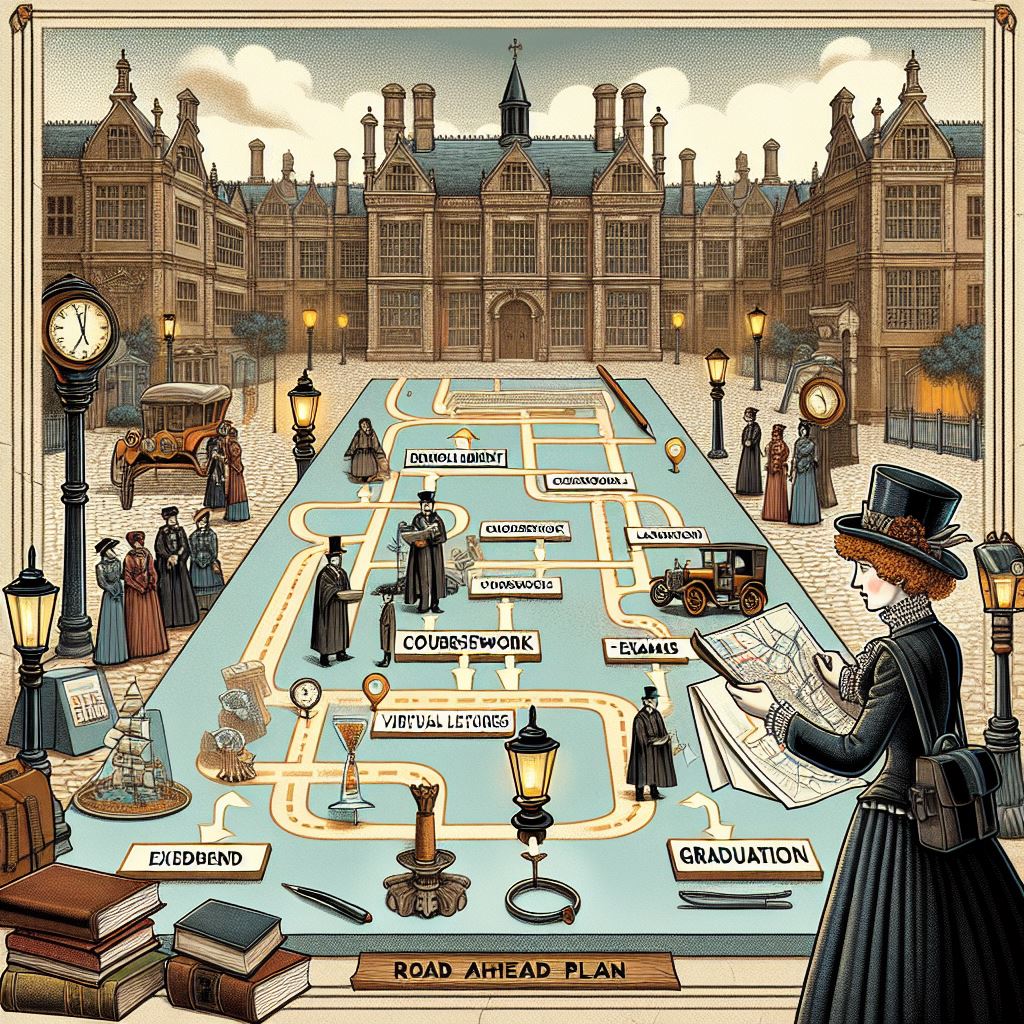Earning a master’s degree is a powerful step forward in any professional’s career. For graduates of the Robert Kennedy College (RKC), this achievement is more than just academic—it’s a launchpad to leadership. With world-class, flexible programs offered in partnership with prestigious UK universities like the University of Cumbria, the University of Salford and the University of Gloucestershire, RKC equips students with not just credentials, but also the global mindset and strategic thinking required in today’s competitive workplace.
But what comes next after graduation? How do you translate your master’s degree into meaningful career advancement? Let’s explore the potential career growth paths for RKC graduates, from post-degree roles to C-suite leadership.
1. Specialist to Strategic Leader: Climbing the Ladder
Many RKC students enter their master’s programs as experienced professionals—mid-level managers, team leads, or technical experts. The knowledge and global exposure gained through their studies often act as a catalyst for:

- Promotions within their current company: Employers value advanced education, particularly when combined with real-world experience. Graduates often move from middle management to senior or executive positions.
- Cross-functional transitions: A manager in operations might move into strategic planning, or an IT specialist might pivot into digital transformation leadership.
- Increased leadership responsibilities: Many alumni are given the opportunity to lead larger teams, manage high-stakes projects, or take on international roles.
2. Entrepreneurial Growth: From Graduate to Founder
Several RKC alumni go on to start their own ventures. With modules focused on strategy, finance, innovation, and sustainability, graduates are well-prepared to:
- Launch startups or consultancies in areas of expertise
- Innovate within their current organization (intrapreneurship)
- Use their academic projects and dissertations as prototypes or market research for business plans
The flexibility of RKC’s online learning platform allows students to work on real-time business challenges during their studies, making the transition to entrepreneurship more seamless and grounded.
3. Sector Switching: Breaking Into New Industries
The interdisciplinary approach of RKC’s programs—covering law, business, marketing, AI, and international relations—opens doors to career changes. Graduates can shift to new sectors such as:
- Tech and Digital: Transitioning into roles like Product Manager, Tech Strategist, or Digital Transformation Lead.

- Sustainability and CSR: With increasing global focus on ESG, graduates with knowledge in sustainable business practices are sought after.
- Education and Non-Profit Leadership: RKC alumni often take leadership roles in academic administration or NGO management, leveraging their global perspective.
4. International Careers: Becoming a Global Leader
Because RKC has a truly international student body, many alumni build or enhance global careers post-graduation. Benefits include:
- Cross-border job opportunities: With UK-recognized degrees, graduates are eligible for jobs across Europe, the Middle East, Asia, and beyond.
- Cultural fluency: Working with peers from around the world during the program enhances intercultural communication—essential for global leadership roles.
- Remote leadership capabilities: The online learning model prepares graduates for leading distributed or remote teams, a growing reality in the modern workforce.
5. Academic and Research Paths: Contributing to Knowledge
For some graduates, the master’s degree is a stepping stone to further academic pursuit. Many RKC alumni go on to:
- Pursue Doctoral (DBA or PhD) programs in their areas of interest
- Publish research in journals and present at conferences
Take up adjunct faculty or lecturing roles in universities worldwide

These roles not only offer personal fulfillment but also establish credibility and visibility in the academic and professional community.
Alumni Success Stories: Inspiration for the Next Step
Many RKC graduates have shared their success stories on the college’s alumni platform and LinkedIn. From leading change at Fortune 500 companies to transforming public-sector organizations, the RKC community is filled with professionals who used their education to create impact.
Whether you’re a current student, recent graduate, or considering applying, take inspiration from these leaders. The path from master’s to leadership isn’t a straight line—but with dedication, strategy, and the right education, it’s achievable.
Your Degree is Just the Beginning
Graduating from RKC with a master’s degree is a significant accomplishment. But it’s also the start of a new journey—a journey toward leadership, innovation, and lifelong learning. Whether you’re looking to accelerate your rise in your current company, switch industries, or become an entrepreneur, your time at RKC has laid a strong foundation.
Take the next step. Define your goals. Leverage your network. And most importantly, believe in your ability to lead.


































